This is yet another of my data loggers for my brother.
He needed a low power data logger that would fit inside a 50mm acrylic pipe. So this is what I came up with.
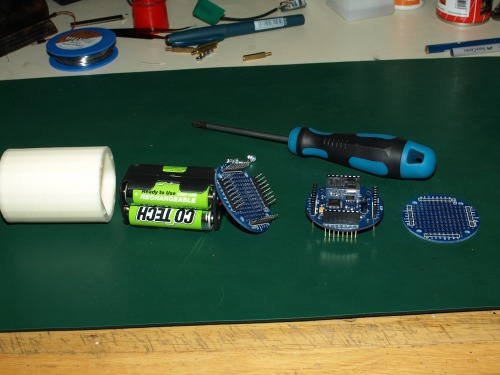
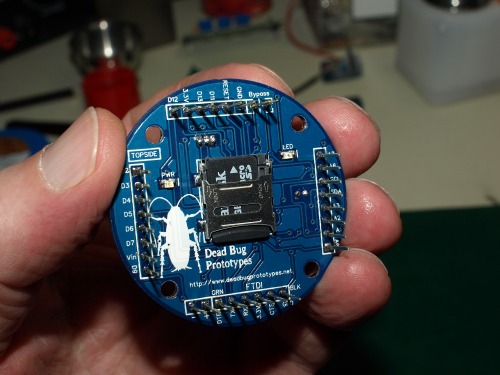
It is a circular Arduino on a 46mm diameter PCB. Everything runs of 4xAA rechargeable batteries. I started the logger on 7.4.2013 and it run out of power at 2.6.2013. So I ran for 56 days taking a measurement of temperature and light every 30 second.
Writing 160.473 data entries on the SD card. Every day I measured the voltage and this is the plot. My battery pack started at 5.56V and the logger gave in at 1.42V (I’m using a MCP1252-33X50 charge pump)
In sleep mode it draws almost no current. Only the current taken for the RTC which is about 0.3uA so the device could be sitting a long time in sleep mode. So if you change the frequency for sampling to once every hour it could probably go on for years.
I also built a programming jig that breaks out all the available IO ports and has a built in FTDI chip. This board also holds my ISP so I can burn the Arduino bootloader onto the logger.
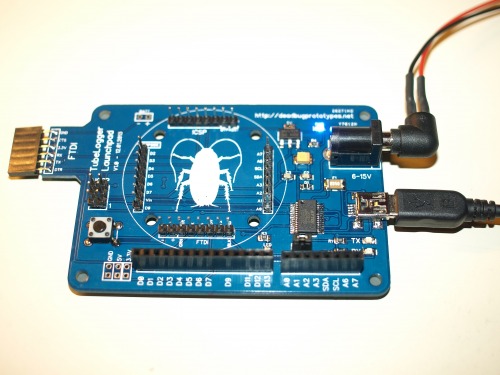
I had some protoboard made as well so they can test things out and attach their own devices. There is a temperature sensor onboard as most of their measurements are taken with respect to time and temperature.
If anyone needs something similar please get in touch. I’m currently working on an Arduino shield that takes any regular Arduino and turns it into a low power data logger.
Update 19.01.2014 New best score of 230.000 log entries.
By a suggestion from OddBot I changed out the NiMh batteries, but instead of going for a LiPo cell I tried eneloop pro batteries holding 2450mAh and that made quit a difference.
With the old NiMh batteries I had it running for 56 days giving me a total of 160.000 log entries.
With the eneloop pro batteries it ran for 80 days with a total of 230.000 log entries
Incredible
I love everything you have ever done and everything you will ever do, sir. Another one outta the park.
Thank you Chris. Coming from
Thank you Chris. Coming from you this means a lot!
Nice work as usual
Very interesting, Geir. I am working on a kind of data logger shield as well: https://www.robotshop.com/letsmakerobots/node/37653
A doo-dad I built
This project jogged my memory, I remembered a little board that I had made, the idea might be helpful to you in the future, sir.
When Pat and I were doing the FetaDuino LCD’s, we needed a way to pre-bootload the Atmegas before we reflowed them to the main board. As you know, you can’t get the SMD Atmega’s with Arduino already inside and we didn’t want to add ICP headers to the final product. I came up with this:
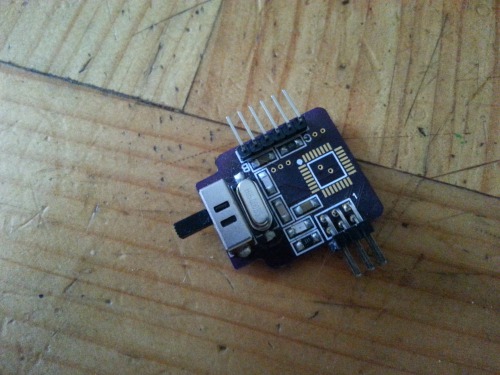
The SMD Atmega simply sits on top with this high-tech holding device...
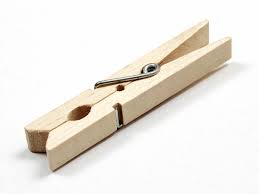
From there, you can ISP or 6-pin header to your heart's content. The switch (as I remember) was to deal with the reset line. I think we had a conflict between the reset on the ISP pins and the 6-pin header, so I added a switch to well, switch between them.
At any rate, this little board turned out to be pretty handy and can save space on final boards.
Good looking setup you have
Good looking setup you have there MarkusB.
I’m also working on a data logging shield for the Arduino (DLS 1.0). The first version is working and is logging every 60 seconds some test data. The power source is a 1000mAh LiPo battery and should run about 25 days. This should give me a logfile of about 36000 entries.
But if I change the frequency from one entry every minute to one entry every hour it should be able to keep logging for over 4 years.
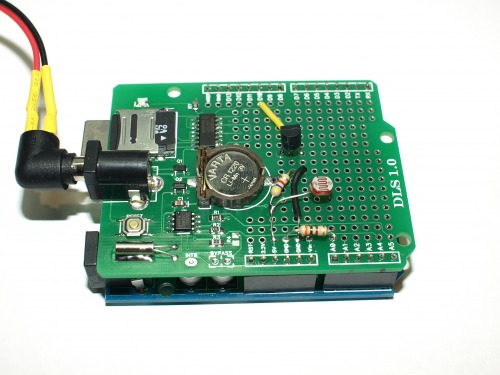
That was a neat little PCB you have there Chris
Personally I would feel a bit more comfortably with the ISP on the board. I have even got myself this cable for a minimalistic footprint if space is an issue http://www.tag-connect.com/TC2030-MCP-NL
Thank you for your input.
Oh no, thank you!
That pogo-pin cable is awesome! Man, what a great solution. I am getting one of these guys on order right now.
Alright, Mr. Andersen… You win this round…









